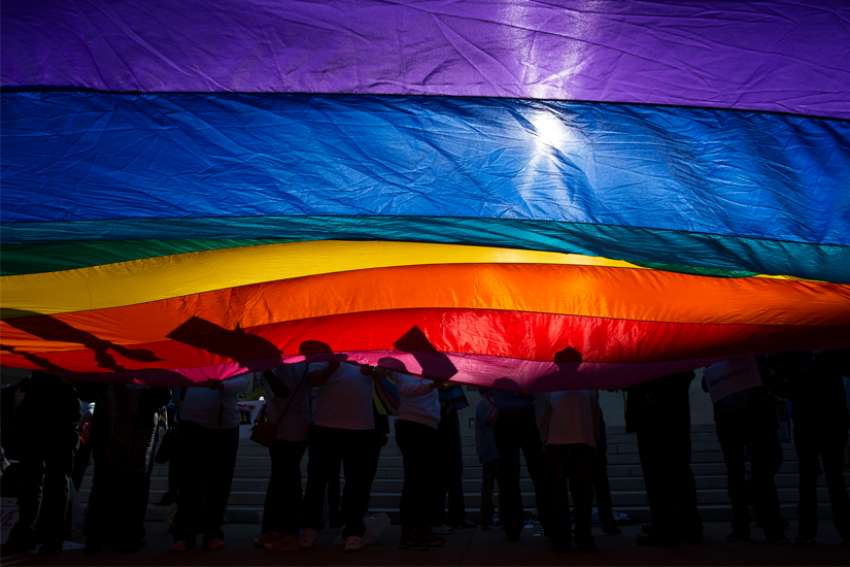Professor Douglas Farrow is accused, in an “Open Letter” recently published by the Religious Studies Undergraduate Society, the Theological Undergraduate Students’ Association, the Union for Gender Empowerment and two campus-wide student associations, of “outward displays of bigoted views” and “deliberate homophobic” beliefs and speech. His alleged conduct is said to make McGill “exclusionary and unsafe … for members of the LBGTQ+ community.”
Farrow calls the accusations “absurd” and says not one representative from any of the organizations raised concerns with him before publishing the letter. He points out there was plenty of opportunity to speak with him since the letter has apparently been in preparation for up to a year.
Its genesis might even date as far back as 2017 when he and Dr. Moira McQueen, director of the Canadian Catholic Bioethics Institute, were chanted and whistled down during a panel discussing “Gender Mainstreaming and Transgender.” The mob disrupting McGill’s Newman Centre purported to represent transgender students plus groups such as Queer McGill and the Union for Gender Empowerment.
An internationally renowned theologian and former holder of the Kennedy Smith Chair in Catholic Studies, Farrow has taught at McGill for about 24 years.
The letter acknowledges him as a “revered” scholar. Yet it charges that very respect he has earned through contributions to the study of theology ignores “the blatant, discriminatory views entrenched in his work,” which justifies McGill acting against him.
“While students and faculty within the SRS are entitled to hold personal opinions, this reverence has exceeded personal respect,” the letter says in calling for his books to be ousted from the lobby of McGill’s Birks Building where the School of Religious Studies is housed.
Farrow says before anyone removes the books, the students should probably read them. The letter’s accusation of a “deliberate homophobic attack” in his 2007 book Nation of Bastards misses the whole point of an essay on Bill C-38, which legalized same-sex marriage in Canada.
“The book is not about homosexuality but about the altered political and legal standing of all Canadians after Bill C-38. The ‘casualty’ to which it refers is the traditional legal understanding of marriage and, with it, the integrity of Canadian law. It explains why that is so, how it happened and what must happen consequently,” he says.
The public letter does acknowledge the professor’s right to free speech. But it argues the rights of LGBTQ+ students get priority. It equates refusing to take Farrow’s classes with creating gender-neutral washrooms in the Religious Studies building. Nor does his freedom of speech extend to asserting disagreement with an administrative requirement to call LBGTQ+ students by their preferred first names.
Farrow says so far there has been no response from the university’s administration to the letter’s accusations or demands. That could change following a School Council meeting on Feb. 18. Farrow himself refuses public comment on what, how or when McGill should respond. He won’t go beyond his refutation of the letter itself.
But he does acknowledge deep concern for where academic life is headed unless his colleagues, and students themselves, take a public stand against attacks on academic freedom such as he’s enduring.
“The real problem is those behind this letter don’t like the anthropology of the mainstream Catholic tradition reflected in my work. They won’t tolerate anyone who affirms it,” he says. “I fear the university is becoming a ‘safe space’ for everything but reason and decency and basic justice.”
(Stockland is publisher of Convivium.ca and a senior fellow with Cardus.)


